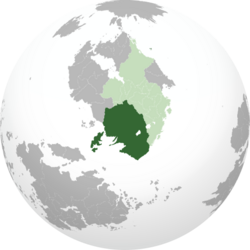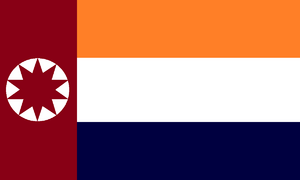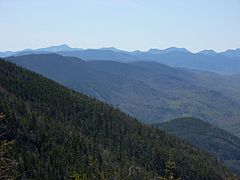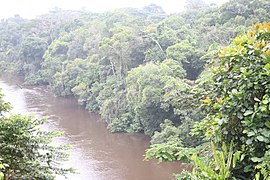Puertego: Difference between revisions
mNo edit summary Tag: 2017 source edit |
mNo edit summary Tag: 2017 source edit |
||
| Line 195: | Line 195: | ||
''Puertego offers free healthcare to all its citizens though the quality is notoriously poor with overcrowding meaning that often times patients have to share beds, unsanitary conditions, and long wait times, there is also a lot of corruption in the government run healthcare with embezzlement being commonplace in the nation's hospitals and many patients reporting doctors demanding bribes to write perscriptions for them. However there have been attempts by the government to increase the quality by cracking down on corruption in the industry with much heavier monitoring of staff and administrators, additionally the government has begun building clinics in rural communities with no access to regular hospitals and also provides free clean water and free vaccinations to all citizens with the latter being attributed to a large reason for the country almost eradicating certain diseases like Polio.'' | ''Puertego offers free healthcare to all its citizens though the quality is notoriously poor with overcrowding meaning that often times patients have to share beds, unsanitary conditions, and long wait times, there is also a lot of corruption in the government run healthcare with embezzlement being commonplace in the nation's hospitals and many patients reporting doctors demanding bribes to write perscriptions for them. However there have been attempts by the government to increase the quality by cracking down on corruption in the industry with much heavier monitoring of staff and administrators, additionally the government has begun building clinics in rural communities with no access to regular hospitals and also provides free clean water and free vaccinations to all citizens with the latter being attributed to a large reason for the country almost eradicating certain diseases like Polio.'' | ||
===Labor=== | ===Labor=== | ||
'' | ''Puertegan workers are forbidden to unionize by law in any state or privately-owned company, the Puertegan government has a long history of violently putting down any attempt by their workers to unionize and or strike, things such as workers co-op's are also explicitly banned by law. Puertego has very few laws regarding labor particularly in regard to workplace safety standards and minimum wage though this has also made Puertegan workers famously cheap which is another reason many companies are outsourcing production to there.'' | ||
===Transportation=== | ===Transportation=== | ||
''How do people in your country get around? Is there a major highway system as well as sea- and airports?'' | ''How do people in your country get around? Is there a major highway system as well as sea- and airports?'' | ||
Revision as of 11:52, 1 April 2023
Puertego ("The People's Republic of Puertego") La República Popular de Puertego (Spanish) | |
|---|---|
|
Flag | |
Motto: "Hacia adelante y hacia adelante para siempre" ("Foreward and onward forever") | |
Anthem: Your song | |
 Location of XXX (dark green) In XXX (gray) | |
| Capital | San Lina |
| Largest city | Capital |
| Official languages | Spanish, English |
| Religion | Puertegan Unified Church |
| Demonym(s) | Puertegan (noun) Puertegan (adjective) |
| Government | Unitary Marxist-Leninist Dominant Party Presidential Republic |
• President | Matthias Torres |
| Legislature | National Assembly |
| Establishment | |
• Independance | January 18th, 1904 |
| Area | |
• Total | [convert: invalid number] |
| Population | |
• Estimate | 65 million |
| GDP (nominal) | estimate |
• Total | $424.611 billion |
• Per capita | $4,960 |
| Gini | 50.2 high |
| HDI | 0.655 medium |
| Currency | Damillo (DMO) |
| Driving side | right |
The People's Republic of Puertego commonly called Puertego, is a Unitary Marxist-Leninist Presidential Republic currently under the rule of President Matthias Torres the leader since 2001 though since the enacting of various capitalist policies the legitimacy of them calling themselves Marxist-Leninist has been questioned. It is bordered on the north by Pelaxia and Volonia and on the west by the Natiserve Bay. Puertego covers 1,185,182 square kilometers and has an estimated population of 65 million. Puertego comprises of 12 states and 1 territory.
Puertego was first a collection of tribes that inhabited its modern-day borders and the land around it until the first empire of the region came to be. Puertego was originally colonized by Caphiria under the name of Puerto Negro because of the large number of slaves moving through and that were in the colony, things got better slowly with the numbers of slaves slowly decreasing until the outlawing of slavery in 1811 where all of them were freed. However, Puertego was still largely impoverished and ruled over my oppressive colonial overlords who brutally repressed the people when they demanded change and treated their newly freed workers almost the same as they did when they were slaves causing multiple large-scale revolts until the country finally gained its independence in a war against Pelaxia in 1904. After independence the country fell into the sphere of influence of the Caphirians who installed multiple puppet dictators to run the country as a banana republic with conditions barely improving for the workers, corruption running rampant, and any industry that wasn't mining or agriculture going bankrupt. The country stayed like this until 1958 where multiple protests and revolts finally got the government to begin transitioning to democracy, however both Urcea and the Caphirians almost immediately became heavily dividing issues in the country's elections with the Puertegan Conservative Party and the Puertegan Labor Party cyclically taking power and cracking down on the other when they gained power until 1972 when the Caphirian government authorized a military coup where a fascist dictator took power, banning political parties until he was overthrown by a communist revolution in 1980 with the country being ruled as a one party state until 1992 where a civil war between the hardline Communist Red Flag party and the reformist Communist White Flag Party broke out ending in 1997 when the Communist White Flag party won and assumed control of the government. The Communist White Flag party is still the incumbent party in the nation's government and them having lost either their majority in parliament or a presidential election for one of their candidates, President Matthias Torres has served as the President of Puertego for 22 years as a member of the party and has taken large measures to liberalize the country's economy preventing stagnation.
Puertego is a regional and middle power in international politics. Puertego is considered a developing, lower-middle income, and newly industrialized country, a large portion of their economy is made by natural resources and industry. The government of Puertego is considered a hybrid regime which maintains elections that are regular and free though not fair while also having strong authoritarian powers such as the ability to crack down on freedoms such as speech, assembly, association, and the press with the country constantly being ranked one of the most dangerous places in the world for journalists having at least 400 actively serving prison time for defamation charges pressed on them by the government and having an extremely poor record with human rights including torture, arbitrary arrests, extrajudicial executions, and unfair trials among many others along with massive levels of corruption and censorship. The country tries to maintain a balanced policy in foreign affairs to try and keep trade good with all countries, making concessions to them without swinging too far to one side.
Puertego is a member of the League of Nations.
Etymology
The name Puertego comes from a combination of the Spanish words Puerto Negro the countries former name due to the large number of slaves that came from it and were moved through it, however after the Puertegan Communist Red flag party gained power in 1980 they changed the name of the country to its current name in order to avoid any former implication the nation could have had with slavery.
History
What is a general overview of your country's path through history?
First era
How was your country originally settled?
Second era
What were the first political structures of your country? Did it have any very early rivals or was it controlled by a foreign country?
Third era
What were your country's first major moves on an international level?
Fourth era
Did your country ever have a period of significant decline or internal struggle?
Fifth era
Was your country subject to imperialism later in its life, or was it an imperial power?
Sixth era
How did the 20th century affect your country?
Geography
-
First lovely location
-
Second lovely location
-
Third lovely location
-
Fourth lovely location
-
Fifth lovely location
-
Sixth lovely location
What is the general explanation of how your country exists within the world?
Climate and environment
Is your country hot or cold?
Government and Politics
How is your country ruled or governed?
Executive
Who is responsible for making high level choices in your country? Does it have a President or King?
Legislative
Who decides the laws for your country? Is there political parties and a legislature?
Federal subdivisions
How is your country divided? Are there states or provinces, or is the country directly governed from the capital as a unitary state?
Politics
What political factions exist? Who has ruled predominantly?
Law
What kind of laws and legal system does your country employ?
Demographics
What kind of people live in your country?
Ethnicity
What ethnic groups make up your country?
Language
What language or languages do your country's people use? Are there any previously used languages no longer common? Are these languages native to your country or shared with another?
Religion
Religious affiliations in the XXX (20XX)
What do your country's people believe in religiously, if anything? How many groups are there?
Education
How many people in your country are educated?
Culture and Society
What do your people do, and what are they like?
Education
What is your country's education system like? How do the schools work? What do people think about education?
Attitudes and worldview
How do your country's people view life?
Kinship and family
How are families or kinship groups structured in your country?
Cuisine
What do your people eat?
Religion
What do your people believe? Rather than demographics, as above, think about how important religion is to your people and their view about their own and other religions. What is the relationship between the prevailing view and minority religious groups? Is it an official religion, and do any laws exist about free worship?
Arts and Literature
What type of art do your people make? Do they have a tradition of painted art, well-crafted television shows, or great music?
Sports
Does your country have any major sports leagues? What types of sports are played, both professionally and for fun by your country's people?"
Symbols
Are there any prominent symbols which are well known to represent your country?
Economy and Infrastructure
The economy of Puertego is considered a mixed model economy based largely on natural resource extraction primarily via agriculture and mining and manufacturing primarily of steel, chemicals, and textiles. The economic liberalizations brought by the incumbent president have switched the country from an extraction based planned economy to one split between extraction and industry, the country has adopted much greater economic freedoms than it had under any previous governments with the Special Investment Zones established under him meant to attract foreign investment through very reduced regulations and taxes to business operating there, though the government also maintains monopolies with their state run industries which operate in utilities and natural resources. Economic growth in the nation has been relatively steady with the economy growing by an average of 6-7% each year since 2001 primarily attributed to the Special Investment Zones established at the time, foreign investors in Puertego get many benefits from the government including temporary subsidies for their investments and not having the full amount of their wealth made from it taxed. The poverty rate in Puertego is around 1 in 5 Puertetgans living below the poverty line, in addition the Puertegan government offers very little in terms of social welfare for average citizens, this combination means that there is a large amount of street crime in the nation's cities and a large black market as well with this being allowed to happen by pervasive corruption in almost all levels of the government.
Industries and Sectors
The single largest sector of Puertego's economy is manufacturing with it making up 64% of the economy and employing 33% of the workforce, the primary manufacturing products in the country are steel, aluminum, various chemicals, and textiles with Puertego also having become a very attractive place for companies to outsource jobs to due to the of their workforce and the low taxes and regulations on business there. Resource extraction is also a very large section of the economy with it making up 28% of the economy and employing 57% of the population, the primary resources sold off by Puertego are often minerals such as iron, gold, tin, nickle, and copper, and agriculture products such as rubber and sugar, all of the natural resources in Puertego including minerals, oil, non-food agriculture, and even fresh water and owned and operated by government run companies. Services are a relatively small section of the economy only making up 8% of the economy and employing 10% of the population with most of the people working in this sector working in finance, banking, or utilities.
Currency
The official currency of Puertego is the Puertegan Damillo, the Damillo is the second longest lasting currency in Puertego having been in use for 26 years. The Damillo currency suffers from an inflation rate of 20% though the government has been making strides to attempt to reduce inflation over the years. The Damillo is split into denominations of 10, 20, 50, 100, 250, 500, and 1,000 which are all issued by the Puertegan Central Bank.
Healthcare
Puertego offers free healthcare to all its citizens though the quality is notoriously poor with overcrowding meaning that often times patients have to share beds, unsanitary conditions, and long wait times, there is also a lot of corruption in the government run healthcare with embezzlement being commonplace in the nation's hospitals and many patients reporting doctors demanding bribes to write perscriptions for them. However there have been attempts by the government to increase the quality by cracking down on corruption in the industry with much heavier monitoring of staff and administrators, additionally the government has begun building clinics in rural communities with no access to regular hospitals and also provides free clean water and free vaccinations to all citizens with the latter being attributed to a large reason for the country almost eradicating certain diseases like Polio.
Labor
Puertegan workers are forbidden to unionize by law in any state or privately-owned company, the Puertegan government has a long history of violently putting down any attempt by their workers to unionize and or strike, things such as workers co-op's are also explicitly banned by law. Puertego has very few laws regarding labor particularly in regard to workplace safety standards and minimum wage though this has also made Puertegan workers famously cheap which is another reason many companies are outsourcing production to there.
Transportation
How do people in your country get around? Is there a major highway system as well as sea- and airports?
Energy
What type of energy keeps your nation going? Are you renewable or use fossil fuels, and if you are renewable, how recently did your country transition?
Technology
How advanced is your country? Is it an innovator, or does it largely import new developments?
Military
How large is your country's military? Is it large but poorly equipped or small and elite? Does your country have a martial tradition?






